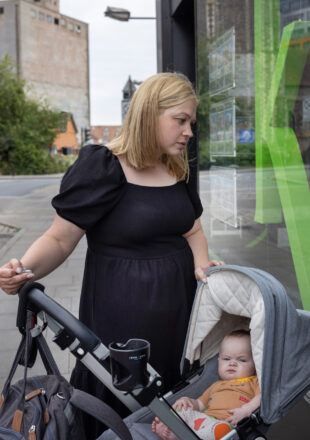Please note this article is for general educational purpose only. This article will give you an overview of what secured and unsecured personal loans are. You might wish to seek professional advice.
If you’re thinking about taking out a personal loan, it’s important to know what you’re signing up for. And you may be wondering what the difference between secured and unsecured loans is. Before you decide what to go for, read on for the full low-down so you can decide which is best for you.
What are secured personal loans?
To take out a secured loan you need to have some ‘collateral’ as security in case you can’t repay it. This is often a property but can be another significant asset such as a car or jewellery.
If you’re unable to repay the loan, your provider would then be able to repossess your assets.
Loans secured against assets other than your house tend to have higher interest rates though, so be aware of what you’re signing up for.
What are unsecured personal loans?
Unsecured loans don’t require you to put up anything as security. Generally, you’ll just need to prove you can make the monthly payments. This is usually proven by having a verified income and an acceptable credit score.
If you’re late with a payment or miss one, you may have to pay a penalty fee though. You may also find that a negative mark gets recorded on your credit file.
If you can’t afford to repay the loan in the long term, your lender may offer you a revised payment plan. If that fails, they may take you to civil court. However, your assets aren’t at risk in the same way they are with a secured loan.
What is the difference between secured and unsecured personal loans?
The main difference is whether you use assets as security for the loan provider. With a secured loan you do, but with an unsecured loan you don’t.
Secured loans are less risky for lenders. This is because they know they’re backed by your assets if you can’t make the repayments. As a result, you might be able to borrow more than you would with an unsecured loan. You may also find you can borrow over a longer period, at a lower interest rate.
However, even if you get a competitive interest rate, pay attention to the total amount of interest due. Even low rates can add up to a significant amount overall, if you take a loan out over a long period.
Regardless of whether you have a secured or unsecured loan, make sure you know if the interest rate is fixed or variable. If it’s variable and goes up, you’ll need to make sure you can cover the higher monthly repayments.
Does a secured loan affect your mortgage?
If you already have a mortgage, taking out a secured loan won’t directly affect your existing agreement. However, it can make your debt-to-income ratio less favourable, assuming your income remains the same. This can affect you if you choose to remortgage in the future.
Does a secured loan affect remortgaging?
Having a secured loan can affect your ability to remortgage in a few ways. Firstly, it will impact your affordability. Lenders will add your secured loan repayments to your current mortgage to calculate your overall monthly debt. They will use this to determine how much you can borrow. This applies regardless of whether you stay in your current home or move to a new one.
If your lender has a maximum loan-to-value ratio (LTV), a secured loan will be factored in here as well. This could also reduce the amount you can borrow.
Some lenders may be more cautious about offering you a remortgage if you have a secured loan. This is particularly relevant if you have a large loan, or if your property has decreased in value since you purchased it. Others may charge you a higher interest rate to offset the risk of you defaulting on the loan.
Alternatively, you may decide to consolidate your secured loan and your existing mortgage when you remortgage. This could simplify your finances, as rather than having two payments to make each month, you’ll just have one.
Of course, we always recommend speaking to a mortgage advisor before you remortgage, to make sure you get the right product for you.
Does a secured loan affect your credit score?
Secured loans can affect your credit score. If a lender carries out a credit report when you apply for a loan you may see a temporary dip in your credit score. This is because this type of check is classified as a ‘hard search’.
Applying for multiple loans in a short period of time can also have a negative impact on your credit score. This is because each application will generate a ‘hard search’.
Once you take out a secured loan, making payments as planned can help build a good credit score over time. This is because it demonstrates you’re a responsible borrower.
Consolidating unsecured debts with a manageable secured loan may also improve your credit score. This is because it will reduce the number of open credit agreements you have and utilise less unsecured debt. It could also help make your finances more manageable.
However, late or missed payments, or defaulting on a loan, can have a significant negative impact on your credit score.
As with any financial decision, think carefully about which product is best for you before you commit to anything. And if you’re not sure about anything or have any questions, speak to a financial advisor first.




















